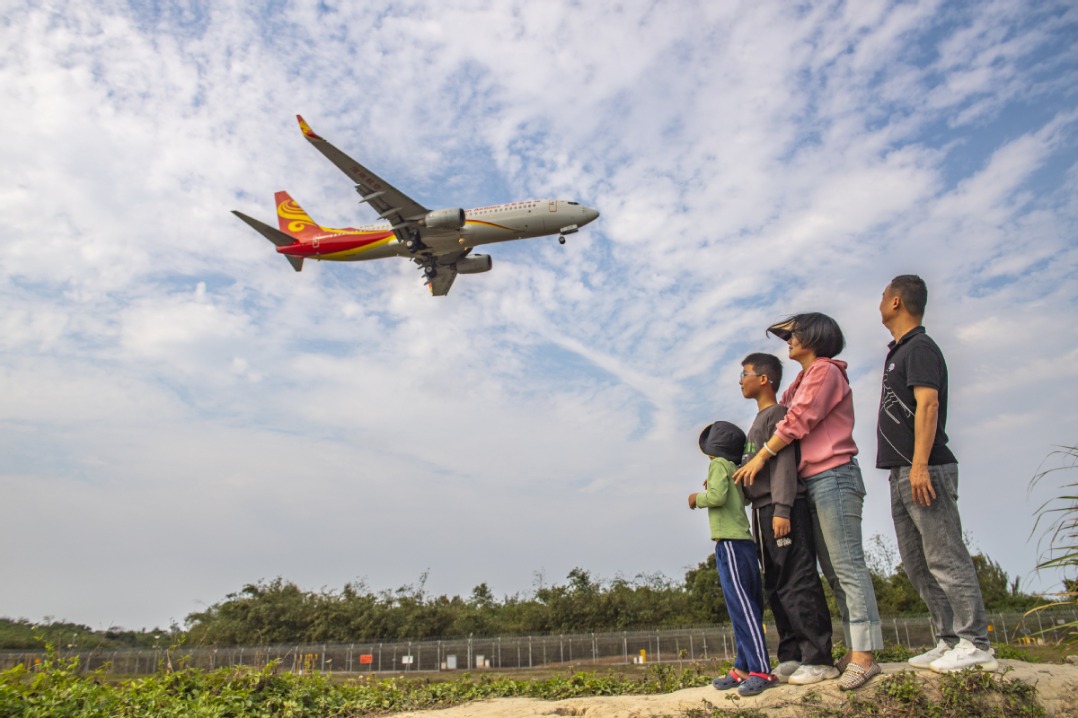China's political system truly serves the people


This year marks the 70th anniversary of the establishment of China's National People's Congress. The people's congress system is a key part of China's whole-process people's democracy, which differs in a number of respects with Western style democracy, especially in terms of its goals and decision-making.
Whole-process people's democracy, as the term suggests, is focused on the people in that its main goal is to better serve the people, which finds manifestation in the role of the Communist Party of China. First, the core aim and main mission of the Party is to serve the people — hence, the people-centric development of whole-process people's democracy. For China's leadership, the interests of the people, all the people, not just a section of society, are paramount.
Second, the social structure on which the Chinese sociopolitical system is based is egalitarian, not based on preferences for any class, creed, socioeconomic group, ethnicity or vested interests.
And third, a key aspect of China's political system is that it is based on merit, where the best and the brightest talents are selected through a rigorous process of training and screening, and they gain experience by working from the grassroots upward, rising through the ranks by dint of their performance and professionalism. For example, the CPC or government officials have to prove their honesty, dedication to the cause of the people and leadership mettle to be promoted to the higher level, meaning they have to work with and for the people to climb up the Party's ranks.
In contrast, the Western system works very differently despite the US claiming to be the greatest defender and promoter of democracy. In the US, decisions are often made by a cabal, a clique or a small group of influential, mostly rich people. Money is central to US-style democracy — for example, two-thirds of US senators happen to be millionaires.
For example, when US President Joe Biden "lost" a debate against Republican presidential candidate Donald Trump on June 27, it was the rich donors of the Democratic Party who reportedly decided Biden should not contest the presidential election, and made sure Vice-President Kamala Harris replaced him as the Democratic presidential candidate. Once the donors decided to no longer fund the Biden campaign, his re-election bid was over. Meanwhile, Trump's campaign spending more than doubled last month as he significantly increased expenditures on advertisements targeting his new opponent Harris.
Another important difference between the US system and Chinese system is that the former is now largely run by influential and powerful lobbies that operate out of Washington. There are more than 100,000 lobbyists working directly or indirectly in Washington, and with a total budget of over $9 billion, they influence US policymaking.
For example, one of the most powerful foreign policy lobbyists is the American Israel Public Affairs Committee, while one of the most influential domestic policy lobbyists is the gun lobby run by the National Rifle Association, which is vehemently opposed to gun control laws despite the fact that every day on average 12 children are either killed or injured in gun violence in US schools and streets.
Another difference in the way democracy functions in China and the US is the manner of decision-making. In China, decisions are made through debates and consultations, and are based on a broad consensus. For instance, the third plenary session of the 11th CPC Central Committee discussed and debated thoroughly in December 1978 before deciding to do "course correction" and launch the epochal reform and opening-up policy.
The decision was reached after a thorough democratic debate and detailed discussions in a transparent manner. In contrast, in the US, as US columnist Thomas Friedman wrote in his article of May 8, 2003, in The New York Times,"25 men who were working (in the private sector) in the vicinity of the White House, had they been exiled to an island, there would have been no Iraq War". In other words, in the US, the decision to invade Iraq was made by a small secretive, unelected cabal of 25 influential men, which makes the invasion of Iraq unjust, illegal and immoral. Worse, the invasion of Iraq was not sanctioned by the United Nations, and was against international law.
The core difference between US-style democracy and China's whole-process people's democracy is that the latter does not represent any vested interests nor is it a power game like in the US, where the military-industrial complex decides whom to wage war against irrespective of the costs and consequences to the US or the world. Thus, US-style democracy can be a threat to global peace, as it is dominated and dictated by the US military-industrial complex, while Chinese-style democracy ensures the country pursues a foreign policy based on peace, inclusivity and shared prosperity through connectivity and cooperation, without seeking conflict or confrontation which has, sadly, become a norm for the US system.
The author is a former minister of information of Pakistan. The views don't necessarily reflect those of China Daily.
If you have a specific expertise, or would like to share your thought about our stories, then send us your writings at opinion@chinadaily.com.cn, and comment@chinadaily.com.cn.
































